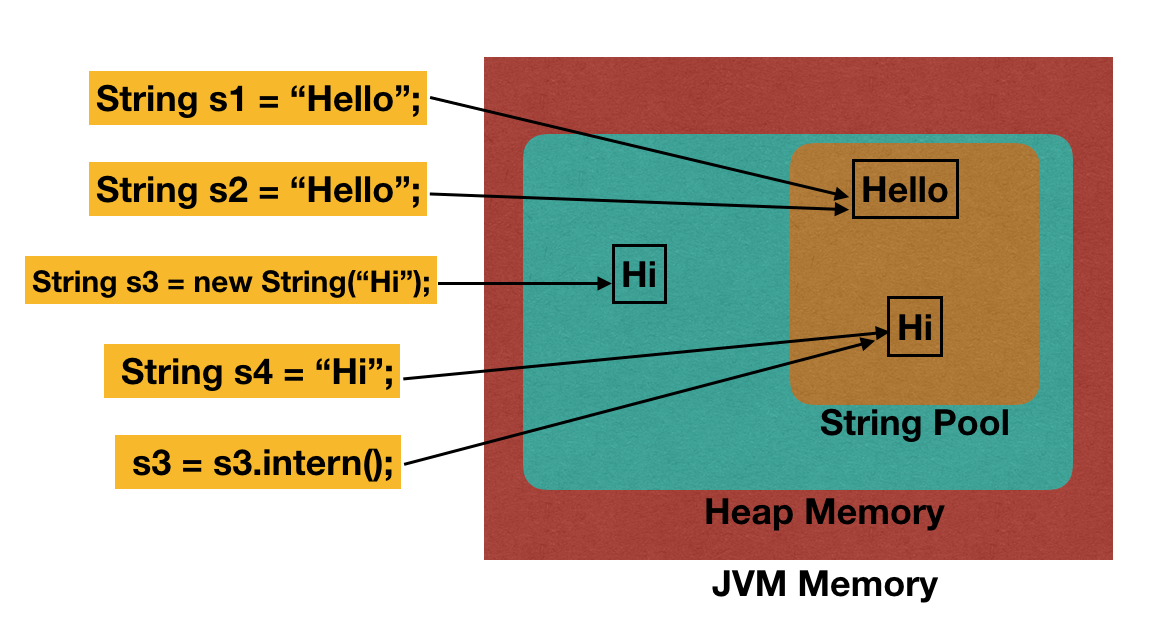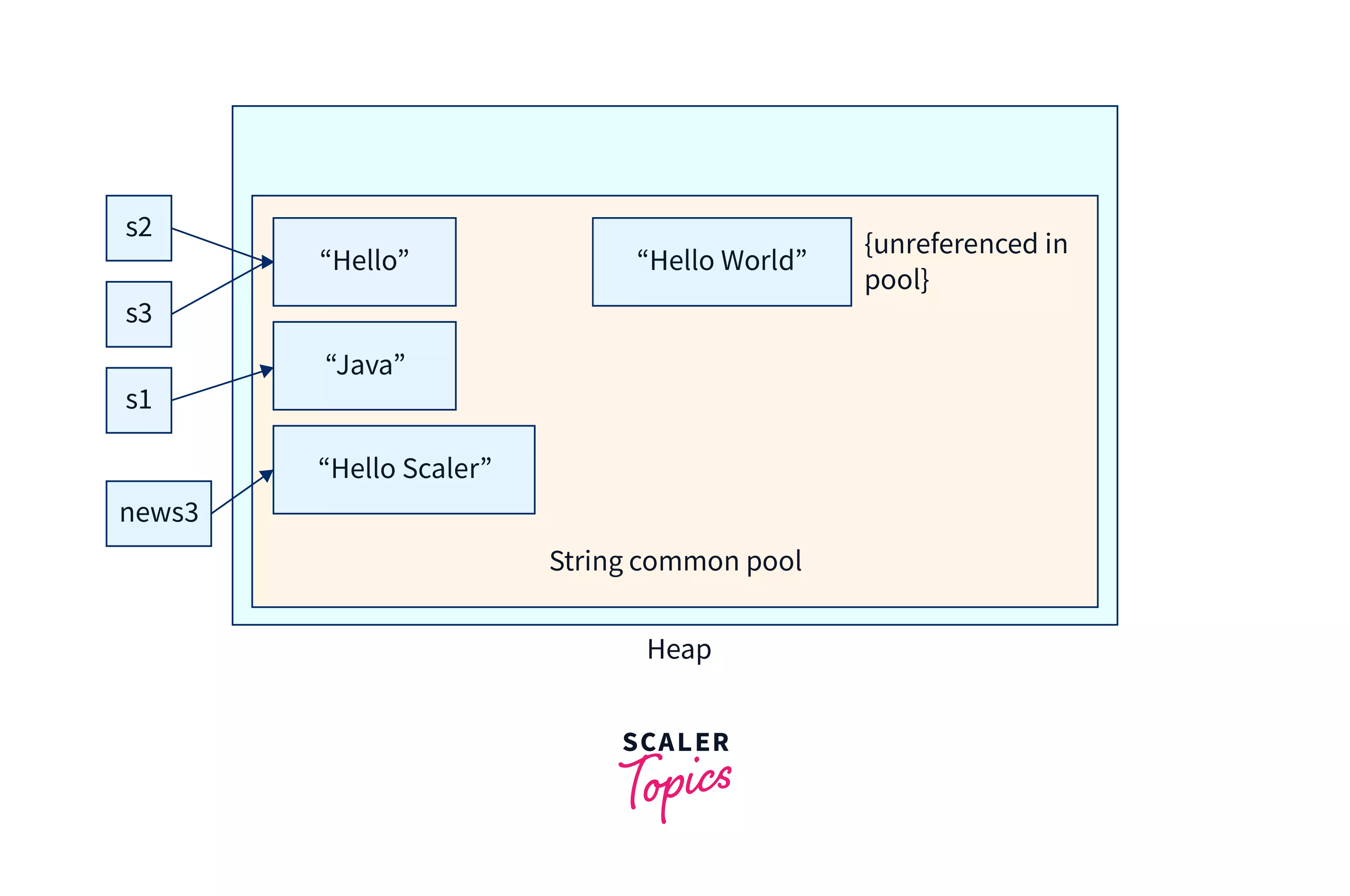Why Are Strings Immutable in Java? Protection and Efficiency Conveniences
Why Are Strings Immutable in Java? Protection and Efficiency Conveniences
Blog Article
What Is Immutable Strings and Just How It Functions
In the realm of shows, comprehending the principle of immutable strings is extremely important for creating safe and robust applications. Unalterable strings refer to strings that can not be changed after they are developed, ensuring data stability and predictability within the code.
The Essentials of Unalterable Strings
Immutable strings, as a basic concept in programming, are character series that can not be changed as soon as they are produced. This implies that once a string is designated a value, that worth can not be modified. In languages like Python and Java, strings are unalterable things, bring about numerous effects in regards to memory management and data stability.
One of the crucial benefits of unalterable strings is that they give a sense of protection in information manipulation. Considering that the material of an unalterable string can not be customized, it guarantees that the initial information stays intact, decreasing the danger of unexpected adjustments during program execution (Why are strings immutable in Java?). This home additionally streamlines debugging procedures, as developers can trust that as soon as a string is specified, its value will not be inadvertently changed
Moreover, immutable strings promote effective memory usage. When a new string is created based upon an existing one, instead of customizing the initial string, the new worth is stored individually. This method improves efficiency by minimizing memory fragmentation and streamlining memory allowance procedures. In general, understanding the essentials of immutable strings is important for grasping programming concepts and optimizing code efficiency.
Advantages of Immutable Strings
Structure upon the safety and effectiveness benefits of unalterable strings, their benefits prolong to improving code integrity and simplifying concurrent programming tasks. By being unalterable, strings can not be changed after development, which gets rid of the risk of unintentional modifications in the information they store. This inherent immutability guarantees that once a string is developed, its worth continues to be continuous throughout the program's execution, reducing the chances of insects brought on by unanticipated changes.
In addition, unalterable strings add to code integrity by making it much easier to reason about the state of a program. Since strings can not be transformed, developers can rely on that a string will certainly always hold the very same worth, simplifying debugging and maintenance efforts. This predictability causes extra dependable and stable codebases.

Implementation in Shows Languages
Within numerous programs languages, the incorporation of immutable strings is a fundamental facet that affects just how data is handled and adjusted click over here within code structures. The implementation of unalterable strings varies across various programs languages, with each language providing its own systems to sustain this principle.

In comparison, languages like C and C++ do not have integrated assistance for unalterable strings. Programmers in these languages need to manually carry out immutability by enforcing policies within their code to avoid direct adjustments to string objects.
Best Practices for Collaborating With Unalterable Strings
When dealing with unalterable strings in programming languages like Java and Python, sticking to ideal methods guarantees reliable and safe information adjustment. Among the vital finest practices is to utilize StringBuilder or StringBuffer instead of directly controling strings, specifically when handling extensive concatenation operations. These classes offer mutable options for string manipulation, helping to stay clear of unnecessary memory appropriations and enhancing efficiency.
Additionally, when functioning with delicate data such as passwords or API keys, it is essential to avoid keeping them as simple text in unalterable strings. Making use of secure storage space devices like char arrays or specialized collections for taking care of sensitive details helps mitigate protection risks linked with unalterable strings.
Real-world Applications and Instances
Discovering useful applications of immutable strings in different sectors exposes their significant effect on data honesty and system integrity. In the medical care industry, unalterable strings play a critical function in making certain the security and discretion of person data. By preventing unapproved alterations to sensitive information such as medical documents and prescriptions, unalterable strings help preserve conformity with stringent personal privacy guidelines like HIPAA.
Economic institutions likewise take advantage of the unalterable nature Recommended Reading of strings to boost the safety of client information and transaction records. Immutable strings help stop fraudulence and unauthorized changes to financial information, offering a durable protection versus cyber threats and ensuring the trust and self-confidence of customers.

Conclusion
To conclude, immutable strings are repaired and stable sequences of characters that provide benefits such as thread security and boosted performance in programming. They are executed in investigate this site various shows languages to make certain information stability and security. Finest techniques for collaborating with unalterable strings include avoiding straight alterations and using methods that return new string items. Real-world applications of unalterable strings include information file encryption, caching, and string manipulation jobs.
Unalterable strings refer to strings that can not be modified after they are created, guaranteeing information honesty and predictability within the code. When a new string is produced based on an existing one, instead than customizing the original string, the new worth is stored individually.In languages like Java and Python, strings are unalterable by default, suggesting that as soon as a string object is developed, its value can not be changed - Why are strings immutable in Java?. Finest techniques for functioning with unalterable strings consist of staying clear of direct modifications and using approaches that return new string items. Real-world applications of unalterable strings include data security, caching, and string manipulation jobs
Report this page